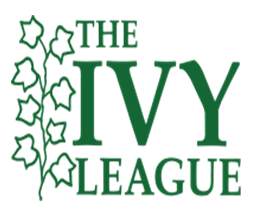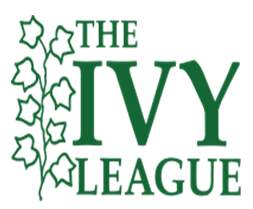 企业家总想对当前的市场佼佼者发起挑战,无论是美国电话电报公司(AT&T)、谷歌公司(Google)或沃尔玛(Walmart),都可能成为被攻击的目标。但是本·尼尔森(Ben Nelson)这次选择的目标规模更庞大、根基更深厚:它就是常青藤盟校。
企业家总想对当前的市场佼佼者发起挑战,无论是美国电话电报公司(AT&T)、谷歌公司(Google)或沃尔玛(Walmart),都可能成为被攻击的目标。但是本·尼尔森(Ben Nelson)这次选择的目标规模更庞大、根基更深厚:它就是常青藤盟校。
尼尔森是“密涅瓦计划”(Minerva Project)的创始人和首席执行官。密涅瓦计划的自我定位是:“首家美国创世纪精英大学”。该计划设定了比较严格的学业录取标准,对在线课程的课堂人数有所限制,教师的教学职责也有很大革新,同时还具备全球化的校园氛围。然而,它的收费却要比传统高等教育机构低得多。
很多人和你一样认为这个“胆大包天”的计划简直就是异想天开。
基准资本投资公司(Benchmark Capital)合伙人凯文·哈维称:“我刚刚听到本的计划时,觉得他的野心太大了,大得有点不切实际。但实际上,他已经做了很透彻的思考,并且最终让我相信,他是可以成功的。”
为此,基准资本向密涅瓦计划投资了2,500万美元,这是该风投公司成立17年以来来最大数额的种子期投资。
尼尔森表示,他之所以会发起密涅瓦计划,是因为了解到有很多学业合格的学生被美国顶尖大学拒之门外。“比如,哈佛大学(Harvard)招生主管就曾说过,85%的申请学生是符合条件的,但最终只有不到十分之一的学生被录取……对于希望进入美国大学念书的外国学生来说尤其困难。精英大学教育在供求方面从根本上来讲很不平衡。”
因此,尼尔森设想了一所摆脱规模制约的精英大学,其运作机制如下:密涅瓦在学生招录过程中只考虑学生的学业因素,而课外活动、家庭背景和经济捐赠情况等其他因素都将被忽略。学费还不到标准常春藤盟校学费的二分之一(也就是不到20,000美元),此外每年食宿费大约为11,000美元。食宿方面学生可以自主选择。如果学生选择此项,他们将住在与纽约大学(NYU)宿舍类似的地方,宿舍位于全球各大主要城市市区。同时,学校还鼓励学生每年变更住宿地址,旅费也将包含在学生缴纳的食宿费用当中。
学生可以在线听取大学课程。每堂课将会分为两部分。首先,密涅瓦会聘请来自顶尖大学的教授向学生讲授专门的在线课程。接下来,密涅瓦会请教师针对该讲座内容开展在线互动式研讨,每个班级不超过25名学生。这与一般大学里的小组交流课有些类似,但主持研讨会的教师都拥有高级学位,而不像一般大学那样由在读研究生来主持。
尼尔森称:“很多人拿到了博士学位却没找到工作,因为他们要么不喜欢、要么不擅长搞科研。但他们可能成为非常优秀、知识渊博的老师,这正是我们需要的人……我们鼓励他们对讲座内容提出异议,或者在课程方面发表自己的观点。我们要努力做到教会学生如何思考,而不是让他们只会听讲,或者死记硬背。”
一旦学生完成学业,密涅瓦会策划相关活动,协助学生开启职业生涯,比如学校会针对学生选择的特定领域,将其推荐给相关领域的人。
当然,这一切都需要成本。尼尔森和哈维都清楚,在最早的这一批学生身上投入的成本将超出学生们支付的学费(如果把奖学金也算在内的话,将更加入不敷出)。他们俩都不确定何时才能达到收支平衡。但尼尔森说过,如果密涅瓦的学生人数能够达到其母校宾夕法尼亚大学(The University of Pennsylvania)的水平(大约25,000人),就能实现盈利。
哈维认为,没有实际的基础设施建设,也不需要聘用研究型教授,这些将会让密涅瓦降低成本。但后面一点有待商榷,因为研究型教授带来的投资通常超过他们的聘用成本。但哈维认为,从长远来看,要像打造一款奢侈品品牌那样来打造密涅瓦大学。
“奢侈品牌的核心在于高门槛。日用消费品中的奢侈品意味着高成本。而教育行业的奢侈品则意味着高水平的录取标准。密涅瓦保证了名校的招生标准,但并未刻意制约达到录取标准的学生人数。它将重新定义精英教育。”
 Entrepreneurs always want to challenge the incumbent, whether it be AT&T, Google or Walmart. But Ben Nelson has a much larger, more entrenched target in his sights: The Ivy League.
Entrepreneurs always want to challenge the incumbent, whether it be AT&T, Google or Walmart. But Ben Nelson has a much larger, more entrenched target in his sights: The Ivy League.
Nelson is the founder and CEO of Minerva Project, which bills itself as “the first elite American university launched in a century.” Academically-rigorous admissions criteria, online courses with limited class sizes, reinvented teaching responsibilities and global campuses. Oh, and significantly lower tuition than traditional institutions of higher learning.
If you think all of that sounds incredibly bold, if not naive, you're not alone.
"When I first heard Ben's pitch, I thought that it was really ambitious, if not impossible," says Kevin Harvey, a partner with Benchmark Capital. "But Ben has really thought this through, and convinced me that it could be done."
To that end, Benchmark has invested $25 million to Minerva -- the largest seed-stage funding in the venture capital firm's 17-year history.
Nelson says that the genesis for Minerva was in learning how many academically-qualified students were being rejected from America's top universities. "Harvard's dean of admissions, for example, said that 85% of applicants are qualified, but less than one in ten is actually accepted... and it's particularly difficult for foreign students trying to get into American schools. There is a basic supply and demand imbalance."
So Nelson envisioned an elite university that eliminated the size constraints. Here's how it works. Students will go through an admissions process that takes only academic credentials into account. Things like extracurricular activities, family legacies and financial donations are ignored. Minerva then will charge "less than half" of standard Ivy League tuition (i.e., under $20,000), plus around $11,000 per year in room and board. The room and board is optional, but those who use it will live in NYU-like urban dorms in major metropolitan centers around the world. Students also will be encouraged to live in different dorms each year, with travel costs baked into the boarding fees.
The curriculum will be offered online, with each class broken into two parts: First, Minerva will contract an established professor -- most likely from a top university -- to create a proprietary online lecture. It then will hire teachers to run online, interactive seminars for no more than 25 students per class -- based on the lecture. Kind of like breakout sessions, except that the teachers all will hold advanced degrees, rather than be current graduate students.
"There are lots of people out there with PhDs who haven't been able to find work because they either don't like research or aren't very good at it," Nelson says. "But they may be great, knowledgeable teachers -- and those are the people we're looking for... If they disagree with the lecture, or offer a different perspective on the subject matter, we will encourage it. We're trying to teach students how to think, not just how to listen and repeat."
Once students graduate, Minerva plans to activity promote their careers -- particularly by making introductions to others in a student's chosen field.
All of this does, of course, cost money and both Nelson and Harvey acknowledge that Minerva's initial students will cost more than they pay (particularly once potential scholarships are factored in). Neither would identify a break-even point, except for Nelson saying that Minerva would be profitable if it got to the point of having as many students as his alma matter, The University of Pennsylvania (approx. 25,000).
Benchmark's Harvey said that Minerva would save money by eschewing physical infrastructure and research-focused professors. Not quite clear on the latter point, given that such folks generally bring in more money than they cost (via matching grants), but his broader point is that building Minerva is a lot like building a luxury brand.
"Luxury brands are about elite access. In consumer goods, that's elite cost. In education, it's elite criteria for admission. Minerva is maintaining those high standards, but not artificially limiting the number of people who can meet it.... This really may be redefining education."
 企业家总想对当前的市场佼佼者发起挑战,无论是美国电话电报公司(AT&T)、谷歌公司(Google)或沃尔玛(Walmart),都可能成为被攻击的目标。但是本·尼尔森(Ben Nelson)这次选择的目标规模更庞大、根基更深厚:它就是常青藤盟校。
企业家总想对当前的市场佼佼者发起挑战,无论是美国电话电报公司(AT&T)、谷歌公司(Google)或沃尔玛(Walmart),都可能成为被攻击的目标。但是本·尼尔森(Ben Nelson)这次选择的目标规模更庞大、根基更深厚:它就是常青藤盟校。

 Entrepreneurs always want to challenge the incumbent, whether it be AT&T, Google or Walmart. But Ben Nelson has a much larger, more entrenched target in his sights: The Ivy League.
Entrepreneurs always want to challenge the incumbent, whether it be AT&T, Google or Walmart. But Ben Nelson has a much larger, more entrenched target in his sights: The Ivy League.